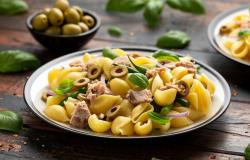The Origins of the Word ‘Ciao’
ITA:

Use player to listen to Italian version

Paywall Content
It is the largest active volcano in Europe, and one of the highest in the world: the 3,326-meter-high (10,912 ft) Mount Etna, located near the city of Catania on eastern coast of Sicily, is a Unesco World Heritage site, whose eruptive history “can be traced back 500,000 years and at least 2,700 years of this activity has been documented, making it one of the world's longest documented records of historical volcanism.”
Centuries of eruptions have modified the surrounding landscape, transforming the typical Mediterranean landscape of Sicily into an evocative, lunar-like environment of black sand, volcanic rocks and lava flows, now protected by a vast natural park, the Etna Natural Park, established in 1987, encompassing 590 sq km and 21 towns, where a prized DOC wine is produced.
The park and the volcano itself can be visited thanks to numerous nature trails, open to visitors. The volcano comprises several ‘mouths’ scattered at various altitudes, produced by the various eruptions over time, accessible by visitors accompanied by a park guide.
Some of the highlights inside the protected area of the Etna Park include: the Valle del Bove, a huge volcanic depression on the eastern side of the volcano, whose walls, up to 1000 meters high, are carved by deep canyons; the Grotta del Gelo, an imposing volcanic basin where a perennial glacier has formed; the Alcantara Caves, the result of the erosive action over the centuries of the cold waters of the Alcantara river.
Italy's highest mountain south of the Alps, Mount Etna offers a spectacular view from its summit.
Eruptions occur frequently, and for this reason the park may be closed to visitors.
Near Etna there are many great places to visit, such as Catania; Taormina, Piazza Armerina, Val di Noto, Syracuse and Pantalica.
È il più grande vulcano attivo in Europa e uno dei più alti al mondo: l’Etna, alto 3326 metri, situato vicino alla città di Catania sulla costa orientale della Sicilia, è un sito patrimonio mondiale dell'Unesco, la cui storia eruttiva “può essere fatta risalire a 500.000 anni addietro e almeno 2.700 anni di questa attività sono stati documentati, rendendolo uno vulcani più a lungo studiati”.
Secoli di eruzioni hanno modificato il paesaggio circostante, trasformando il tipico paesaggio mediterraneo della Sicilia in un suggestivo ambiente lunare di sabbia nera, rocce vulcaniche e colate laviche, ora protetto da un vasto parco naturale, il Parco Naturale dell'Etna, istituito nel 1987; misura 590 kmq, comprende 21 città, e al suo interno viene prodotto un pregiato vino DOC.
Il parco e il vulcano possono essere esplorati grazie a numerosi percorsi naturalistici, aperti ai visitatori. Il vulcano comprende diverse ‘bocche’ sparse a varie altitudini, prodotte dalle varie eruzioni nel tempo, accessibili ai visitatori accompagnati da una guida del parco.
Alcuni dei luoghi da non perdere all'interno dell'area protetta del Parco dell'Etna sono: la Valle del Bove, un'enorme depressione vulcanica sul lato orientale del vulcano, le cui pareti, alte fino a 1000 metri, sono scolpite da profondi canyon; la Grotta del Gelo, un imponente bacino vulcanico dove si è formato un ghiacciaio perenne; le Grotte dell'Alcantara, il risultato dell'azione erosiva nei secoli delle fredde acque del fiume Alcantara.
La montagna più alta d'Italia a sud delle Alpi, l’Etna offre una vista spettacolare dalla sua cima.
Le eruzioni si verificano frequentemente e per questo motivo il parco potrebbe essere chiuso ai visitatori.
Vicino all'Etna ci sono molti bei luoghi da visitare, come Catania, Taormina, Piazza Armerina, la Val di Noto, Siracusa e Pantalica.











